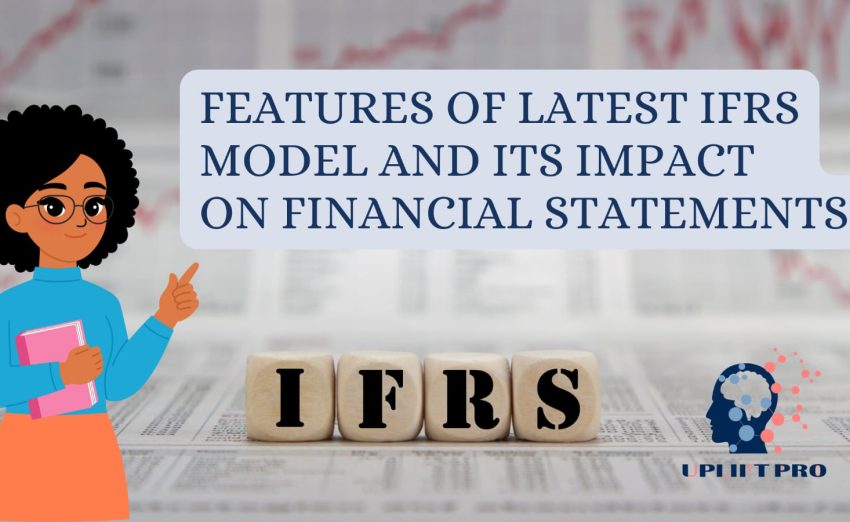IFRS (International Financial Reporting Standards) are a set of accounting standards developed by the International Accounting Standards Board (IASB) to provide a global framework for how public companies prepare and disclose their financial statements. The goal of IFRS is to create a common accounting language that enhances transparency, accountability, and comparability of financial information across international boundaries.
Features of the Latest IFRS Model:
Principle-Based Standards:
The IFRS (International Financial Reporting Standards) model is based on principles rather than strict rules. This allows for flexibility in applying standards across various industries and regions.
Fair Value Measurement:
IFRS emphasizes the use of fair value over historical cost for asset and liability measurement, which reflects current market conditions.
Revenue Recognition (IFRS 15):
The latest model emphasizes recognizing revenue when control of goods or services is transferred to the customer, aligning revenue recognition across industries.
Leasing (IFRS 16):
This standard requires companies to recognize most leases on the balance sheet, reflecting assets and liabilities more transparently.
Financial Instruments (IFRS 9):
Introduces a new model for classification and measurement, impairment, and hedge accounting for financial instruments.
Consolidation (IFRS 10):
Strengthens control definitions, clarifying when companies should consolidate financial statements with those of subsidiaries.
Disclosure Requirements:
IFRS enhances transparency through detailed disclosure requirements, providing more information on risk, accounting estimates, and assumptions.
Impact of the Latest IFRS Model on Financial Statements:
Enhanced Transparency:
The IFRS model, with its emphasis on fair value and detailed disclosure, improves the clarity and comparability of financial statements across different jurisdictions.
Balance Sheet Changes:
IFRS 16, for example, significantly impacts the balance sheet by bringing most leases on the books, increasing both assets and liabilities.
Profit and Loss Impact:
The shift from a historical cost basis to fair value may result in greater volatility in earnings due to the frequent revaluation of assets and liabilities.
Revenue and Profit Timing:
IFRS 15’s revenue recognition approach may shift when companies recognize revenues and profits, especially for businesses that engage in long-term contracts or bundled goods/services.
Impairment Models:
IFRS 9’s expected credit loss model could lead to earlier recognition of credit losses, affecting financial institutions and companies dealing with receivables.
International Comparability:
By adopting a uniform global standard, IFRS enhances the ability of investors and other stakeholders to compare financial performance across countries and industries.
Compliance Costs:
Implementing the latest IFRS standards may increase the compliance burden on companies, requiring changes in accounting systems, processes, and staff training.
The latest IFRS model pushes companies towards providing a more accurate and real-time reflection of their financial health, impacting investor decision-making, risk assessment, and financial stability.
For professional studies in Accounting and Finance feel free to contact Uplift Professionals.

Comments are closed.